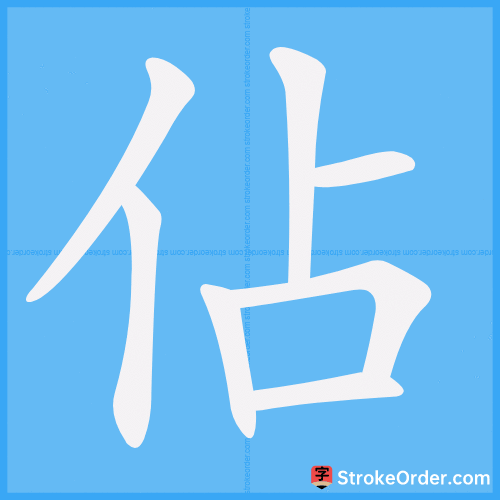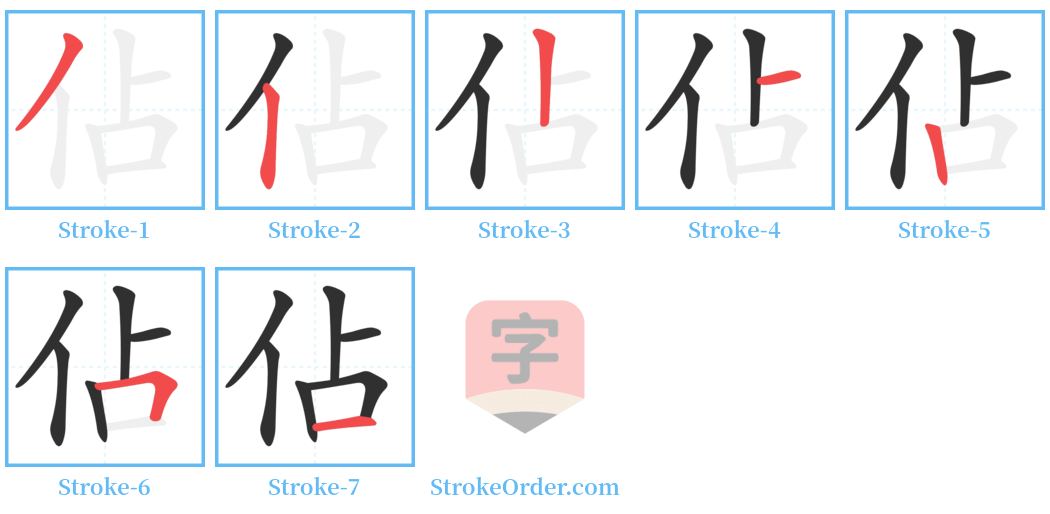佔 Stroke Order
Animated Stroke Order of 佔

Stroke Order Diagrams for 佔

Step-by-Step Handwriting Guide for 佔

Learn to Write Chinese Characters with Video Tutorials
Watch the video of writing the Chinese character "佔", learn the correct stroke order (笔顺) of the character "佔", and master the standard way of writing the character "佔".
Free Printable Handwriting Practice with Stroke Order: 佔
Printable Writing Practice Worksheet of "佔" in Portrait Orientation (Tian Zi Ge)

Printable Writing Practice Worksheet of "佔" in Landscape Orientation (Tian Zi Ge)

Information of 佔
Pinyin
zhàn、 diān
Radical
亻
Strokes
7 strokes
Usage
★★★
Definition
to observe / to divine, to divine, to occupy / to constitute / to make up / to account
佔 (zhàn)
1. Same as "占" (to occupy or take possession).
2. Verb: To possess or occupy. Commonly understood as "占".
Example: In the poem by Fang Gan, "The area occupied has not exceeded four or five feet; only two or three stars are reflected in the sky."
3. Verb: To have or possess.
Example: In Han Yu's essay "Advancing in Learning," he states: "Those who occupy minor virtues are usually recorded; those who name a skill are all mediocre."
4. Verb: To possess or occupy. Commonly understood as "占".
Example: In the poem by Fang Gan, "The area occupied has not exceeded four or five feet; only two or three stars are reflected in the sky."
5. Verb: To have or possess.
Example: In Han Yu's essay "Advancing in Learning," he states: "Those who occupy minor virtues are usually recorded; those who name a skill are all mediocre."
6. [~侸] a. Light; b. To hang down; c. Tired.
7. Verb: To infer good or bad fortune based on signs.
Example: In the "Rites of Zhou", Spring Officials' Divinations: "In all divinations, the ruler assesses the body, the nobles assess the color, the historian assesses the ink, and the diviners assess the cracks."
8. Verb: To inspect or coordinate.
Example: In the "Book of the Later Han", volume 65, in the biography of Duan Shang: "As I moved my troops into summer, we continuously received sweet rain; during the year, the yields were abundant, and without disease or epidemic among the people, this was an indication of the will of heaven, and there will be no disasters."